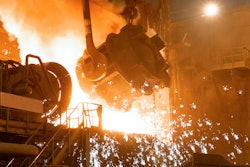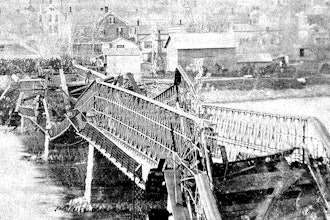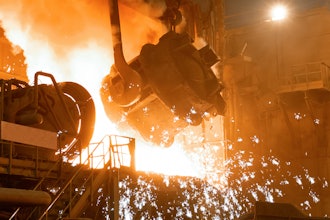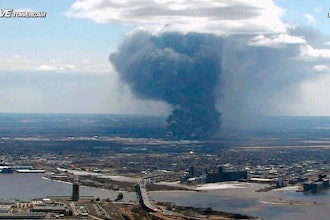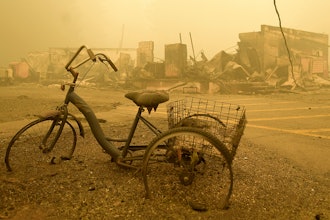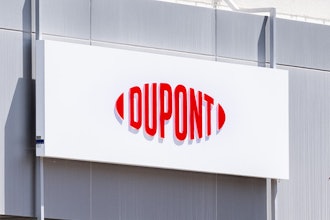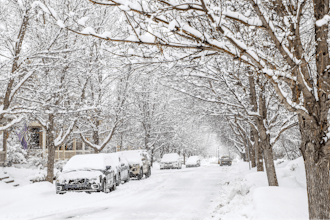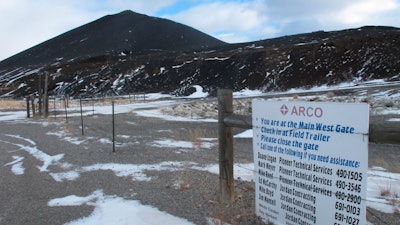
BILLINGS, Mont. (AP) — A subsidiary of London-based oil giant BP agreed to finish its cleanup of a 300-square mile (776-square kilometer) site in Montana that's contaminated with arsenic and other pollutants from decades of copper smelting, and to repay the U.S. government $48 million in response costs.
Under a legal decree filed Friday in U.S. District Court, the Atlantic Richfield Company committed to finishing cleanup work in residential yards in the towns of Anaconda and Opportunity. It also will clean up soils in the surrounding hills and address the remaining piles of contaminated waste at the site.
Arsenic and toxic metals spewed from a 585-foot-tall smokestack in Anaconda for nearly a century and the pollution settled into the ground for miles around. It's the toxic legacy of southwestern Montana's mining days, when copper ore processed in Anaconda was used to electrify the United States.
Opportunity resident and former smelter worker Serge Myers, 77, said any additional cleanup work done under Friday's agreement would be beneficial. But he remained disappointed the remediation plan being used won't clean residential yards unless they contain more than 250 parts per million of arsenic — a level that Myers and other residents have said is arbitrary and still unsafe.
"There's hot spots in some areas. Everybody knows that. I wish things had turned out differently where we really had more cleanup work than we had done," said Myers, who worked at the smelter for 17 years.
The "Copper King" Marcus Daly and the Anaconda Copper Mining Co. began smelting copper ore from Butte in 1884. In 1977, ARCO purchased the Anaconda Co. and inherited vast lands polluted with arsenic, lead, copper, cadmium and zinc from ore-processing operations and stack emissions. Later, under the federal Superfund law, ARCO became retroactively liable for that contamination.
Three years after Atlantic Richfield shut down the Anaconda smelter in 1980, the U.S. Environmental Protection Agency designated it as a Superfund site because of the risk to human health and the environment. The major concern was high concentrations of arsenic in the soil and water, a contaminant that can cause cancer and a range of other diseases.
Myers and others worried about health problems from the pollution had long complained that the EPA had botched the cleanup. A tentative deal to finish the work was first announced more than four years ago.
In 2020, the U.S. Supreme Court blocked an effort by homeowners near the smelter to do cleanup work without permission from the EPA. The homeowners wanted to force Atlantic Richfield to pay for the removal of more arsenic-tainted soil beyond what the EPA had ordered.
Atlantic Richfield previously said it had spent $470 million to clean the site under multiple federal orders. The remaining work is estimated to cost $83.1 million.
Montana U.S. Attorney Jesse Laslovich, who was born in Anaconda, said the towering smokestack at the site remains a symbol both of the hard work that built the community and contamination that lingered too long.
"Our water will be cleaner, our soils will be purer, our slag will be covered, and our future will be brighter because of this historic agreement," Laslovich said in a statement.
The smokestack is now a state park that nobody can visit because of the pollution.
In 2021, Atlantic Richfield quietly settled a civil lawsuit filed in 2008 by 98 people in Opportunity and the community of Crackerville. They wanted restoration damages to pay for a more thorough cleanup than what was planned by ARCO under the federal Superfund law. Details of that agreement were not disclosed.
Friday's agreement must be approved by a federal judge and also is subject to a 30-day public comment period. It was signed by representatives of Atlantic Richfield, the EPA, the U.S. Justice Department and Montana Gov. Greg Gianforte.
John Davis, a lawyer who has represented ARCO, did not immediately respond to a request for comment about the agreement, nor did representatives of BP.




